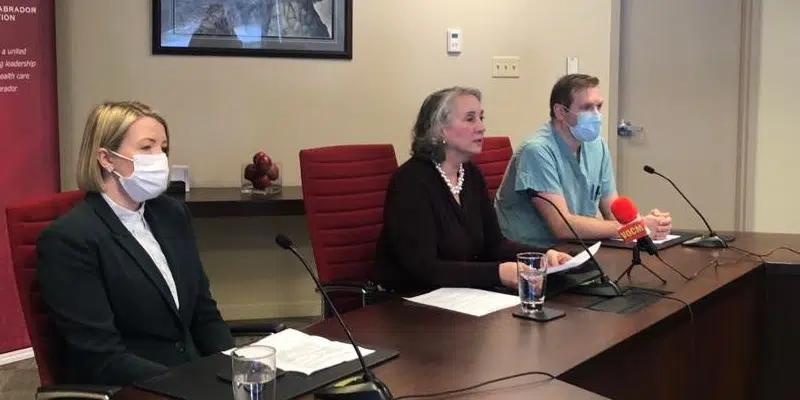The NLMA says it’s a life and death situation in Newfoundland and Labrador as doctors grapple with the backlog of thousands of surgeries and procedures.
President Dr. Susan Macdonald spoke at a news conference Friday morning warning of another health care crisis in the province.
She says delays from the COVID-19 pandemic, as well as the IT Outage late last year has left doctors unable to provide patients with access to non-emergency surgical procedures in an acceptable time frame.
The NLMA says the problem extends across the province, but is most severe in St. John’s. Macdonald says data shows a backlog of more than 6,000 operative cases from the Health Science Centre and St. Clare’s Mercy Hospital alone.
Macdonald stresses that each one of those cases is a human life, someone waiting on a life-changing surgery.
The NLMA is calling on the government to implement a four-part short term plan: commit to reducing the backlog to pre-pandemic levels by a fixed date, bring together stakeholders including frontline medical staff to contribute to the plan and implementation, Increase operating room capacity within the regional health authorities and to establish an online dashboard—like the one for COVID-19—to report the number of backlogged surgeries that can be updated once a month.
The province, meanwhile, responded to the concerns late Friday, noting they had to reduce services in order to be responsive to potential increases in COVID-19 patients, which in turn affected wait times for less urgent patients.
The government also pointed to the disruption caused by the cyberattack that impacted health IT systems.
“The Regional Health Authorities are making significant headway in achieving pre-pandemic levels of service delivery in key areas such as surgery, endoscopy, lab and diagnostic imaging recognizing,” the province said in a statement to media, noting work is ongoing to address existing backlogs.
“However, they continue to experience many challenges associated with staffing and other operational issues related to COVID management, as well as the challenges that existed pre-COVID.”























